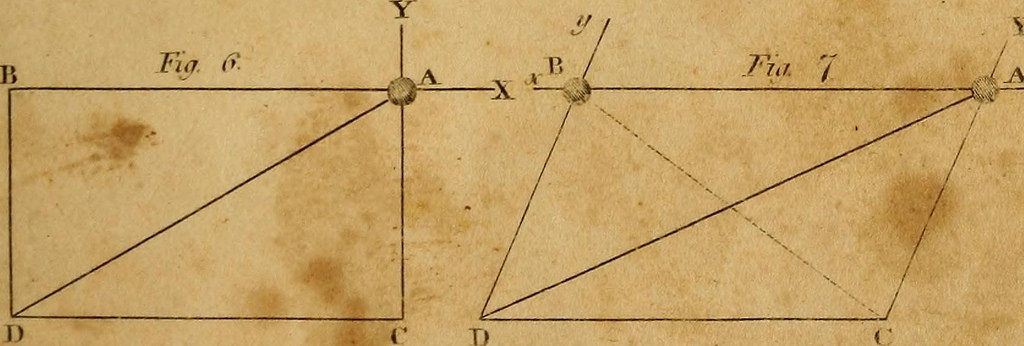Leo Strauss would want us to pursue the question of teleology in nature. Natural right depends on it.
The Strange Morality of the Empiricist Evangelists

Even in a time of unbounded technology, feel-good utilitarianism has its limits.
Wise and Ellmers have provoked an important conversation about the rightful role of natural philosophy in the conduct of the sciences. To further the discussion, I offer a brief explanation of how scientism privileged itself and “freed” itself from pertinent concerns of epistemology, meta-ethics, and metaphysics, followed by some suggestions as to how we can restore science to its proper position and continue to consider important non-scientific questions without falling prey to scientism.
For an era plagued by scientism, much of the Left’s rhetoric today is curiously rife with moralization. This is ironic because many on the Left have been the main proponents of scientism and moral relativism for much of the recent past.
For a group that doesn’t believe “good” and “evil” can be defined objectively, they sure spend a lot of time telling other people what is good and evil. But let’s momentarily forgive the hypocrisy and try to understand why the Left, and many others across the political spectrum, seems so conflicted about morality.
The Curse of Scientism
Much of our culture pushes empiricist epistemology on children from a young age. Not only is current scientific knowledge treated as gospel, but non-scientific knowledge is considered oxymoronic. At best, this means that we can never verify any knowledge that could not be verified through scientific methods. At worst, this means that this type of knowledge could not have a truth value in the first place.
In either case, questions of morality and the meaning of life are deemed simple disputes in preferences with no possible objective answers. This understanding immediately gives rise to moral relativism and nihilism. It also shuts the door on any serious inquiries into a number of important fields. Moral philosophy, meta-ethics, and metaphysics become moot. The existence of these fields as serious academic or intellectual disciplines is fundamentally incompatible with the empiricist view.
But most people do have at least an intuitive sense of morality, even if they don’t always follow it faithfully. For those of us who aren’t psychopaths, this sense stems from something beyond pure intellectualized adherence to societal norms. Our conscience hurts when we do something that we sense to be immoral—even when we try to rationalize its morality.
The Case of Utilitarianism
Much of academia and the intelligentsia have dismissed this sense as an evolved mechanism to facilitate social interaction and have tried to reduce the idea of morality to physical terms.
One such attempt, utilitarianism, ended in spectacular failure—demonstrating many of the reasons that these projects are misguided.
No matter how much utilitarianism tried to refactor moral considerations into material ones, it always ended up begging the question by assuming that morality simply dealt with the physical conditions of the world. This posed a huge problem for empiricists who believed in objective morality: they found it exceedingly difficult to give a proper material account. And so, many rejected the initial premise and chalked morality up to a social construct created in response to natural conditions.
Because they viewed their sense of morality as fundamentally different from their empirical senses, they didn’t think to apply the same types of rigorous rationality that science applied to the physical senses. Instead of viewing their moral sense as a source of information about the world, they viewed it as a culturally evolved preference.
But there was a time when we didn’t have methods for rigorously developing and testing scientific theories about the material, physical world. Aristotle, as brilliant as he was, might have benefited from these methods—some rigorously double-blinded experiments may have dissuaded him of the belief that eels spontaneously generate from mud. But are we arrogant enough to think that we have plumbed the depths of epistemology and that similar methods couldn’t be developed for our moral senses? Or are we simply too lazy to try?
Square Peg in a Round Hole
The rapid technological advances of the past few centuries have been rooted in the physical world. We have landed humans on the moon and have created machines that can run nearly a quarter of a quintillion floating point operations per second. We have engineered stunning skyscrapers and bridges and achieved amazing medical feats.
This convinced many thinkers that humans could fundamentally overcome nature and solve all of society’s problems. Their empiricism prevented them from considering the potential pitfalls if objective morality existed and humanity tried to progress without understanding it adequately.
If practical physical problems could be solved through engineering, why couldn’t social “problems” be solved through social engineering? They would try to apply the same scientific methods that had served them so well in the physical world to the study of society. In doing so, they happily threw out centuries of study from historians and philosophers and replaced these careful considerations with a slew of hastily run linear regressions.
But to truly apply the scientific method, these social scientists would occasionally have to run experiments. Some were willing to sacrifice the lives of millions to do so. At the end of this slaughter, they failed—without learning much about human nature that the ancient philosophers couldn’t have told them.
But to this day, many still believe the failures of social science and social engineering will be overcome by simply trying again. They argue that the methodology is fundamentally sound and that with enough iterations, social scientific knowledge will outpace traditional social theory in accuracy and precision. Armed with the assumption that the underlying methodology is infallible, they believe it is only a matter of time until their social scientific machinery mechanistically spits out the right answer. In making this argument, they continue to view morality as a purely human construction that only deals in material outcomes and conditions.
You Know What You Know
No matter how much empiricists rationalize and intellectualize away their moral sense, they still have it. And they intuitively recognize that it has merit. Moral language is powerful because it appeals to this sense.
The most consistent empiricists aspire for a Vulcan-like dispassionate rationality that relies on some form of utilitarianism for an ethical framework. They realize ethics is compelling, but want to control it through reason. They will admit that their definitions of utility are ultimately taken as axiomatic but will insist that with enough science, they will make the happiest possible society—at least by their definitions.
But many self-proclaimed “believers in science” don’t have such nuanced understandings of epistemology or meta-ethics. They largely go by feel. And boy, do they feel.
They may parrot the rhetoric of the more considered empiricists because it signals that they have skimmed Wikipedia pages on the Enlightenment. But for the most part, they don’t truly grasp the implications of strict empiricism.
The irony of the phrase “I believe in science” should not be lost on anyone, but too frequently it is. This, in and of itself, shows the lack of serious thought that many casual empiricists exhibit. And lack of serious thought is precisely what allows them to simultaneously cling to scientism while promoting a simplistic, feel-good, bumper-sticker morality.
The American Mind presents a range of perspectives. Views are writers’ own and do not necessarily represent those of The Claremont Institute.
The American Mind is a publication of the Claremont Institute, a non-profit 501(c)(3) organization, dedicated to restoring the principles of the American Founding to their rightful, preeminent authority in our national life. Interested in supporting our work? Gifts to the Claremont Institute are tax-deductible.
Ellmers and Wise’s skeptical philosophers will have to speak to the scientific academy in its own language. These are the questions that need answering.
Could it be that the “Aristotelian” teaching of teleology is exoteric?
Across the scientific disciplines, today's problems arise from the same root cause.
Responses to Glenn Ellmers and J. Eric Wise's argument for an invigorated political philosophy that addresses the looming problems of modern science.





